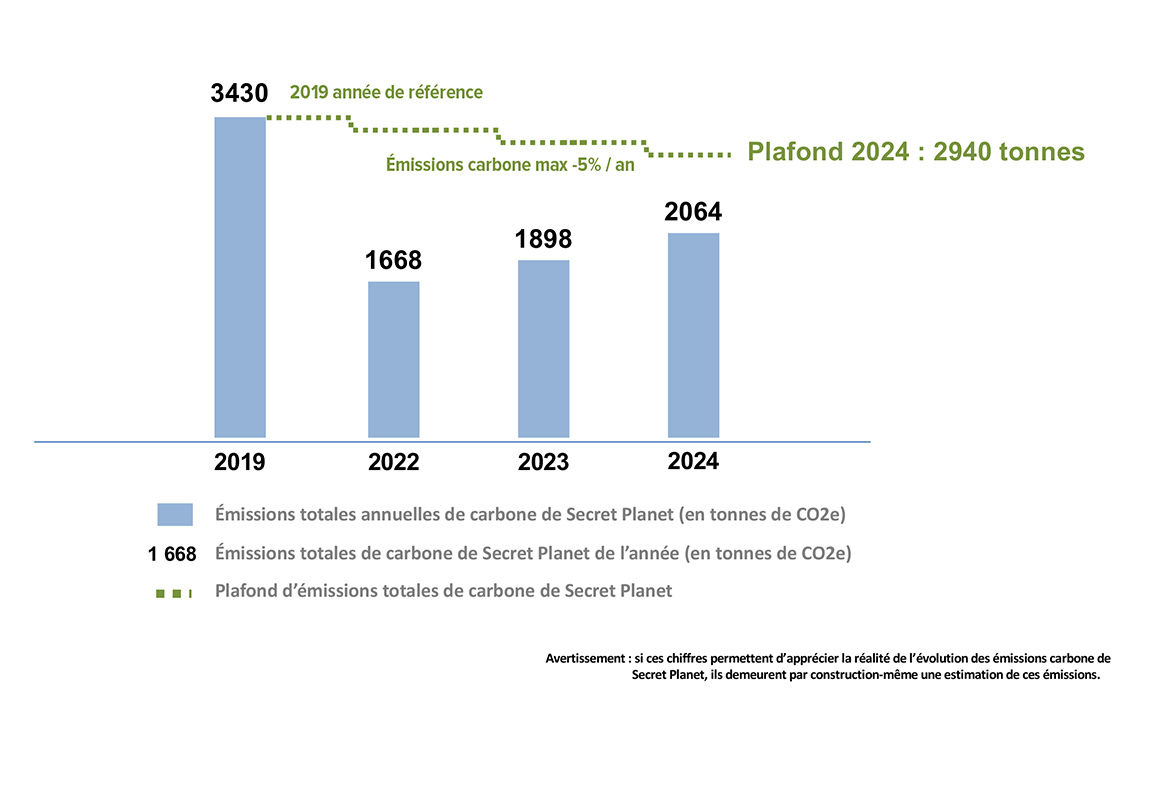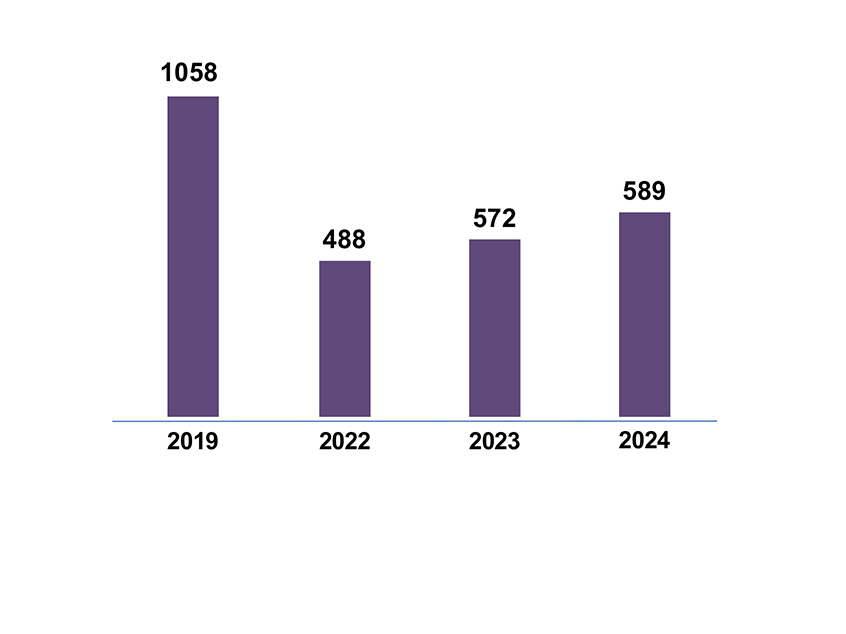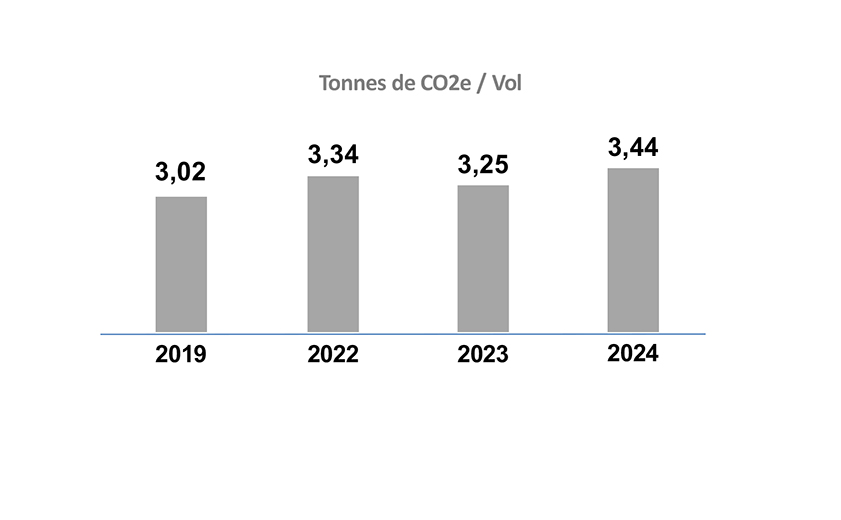Controlling of our carbon emissions Progress report 2024
While global ecological transition objectives are being undermined in many parts of the world, Secret Planet, with its two businesses Tamera and Expeditions Unlimited, is trying to maintain an ambitious course of control of the growth of its carbon emissions.
Among the pioneers in the world of agencies, from 2018, we developed an indicator to measure the carbon footprint of each of our trips with a view to raising awareness among our travelers, educating them and encouraging us to reflect. In 2022, in what is perhaps a unique approach in our profession, we set ourselves very ambitious maximum carbon footprint targets in the spirit of the 2015 Paris Agreements, aiming for a 5% reduction per year until 2030.
We would like to share this progress report with you. What goals have been achieved? What progress remains to be made between now and 2030, and what avenues for optimization are still possible? We would like to discuss this with you, so please feel free to send us your comments using our contact form.
Monitoring of carbon emissions 70% of our maximum limit by the end of November 2024
At the end of November 2024 (end of the financial year), our carbon emissions for the year 2024 stood at 2064 tons, up 9% vs. 2023 with 1898 tons, for an activity growing by more than 13%. Our carbon intensity (ratio between emissions and turnover) has therefore evolved in the right direction with trips with higher added value.
These 2064 tons should be compared with the 2940 tons that represent the 2024 maximum limit that we have set ourselves as part of our commitments to reduce our emissions vs. 2019. We are therefore at 70% of our maximum limit for 2024.
Evolution of our total carbon emissions, excluding 2020 and 2021, non-representative Covid years

Method of calculation and commitments to reduce our carbon emissions
Reducing carbon emissions International flights for 83% of the total
We are trying to find a way forward with our customers in a complex equation between our air carbon emissions (international flights) over which we have little control, and land carbon emissions over which we have little room for improvement, as they are already optimized, given the type of travel we do (soft travel).
Moreover, when the carbon emissions of our trips represented 2064 tons in 2024, 1720 tons came from emissions from international flights compared to 304 for land emissions (road and air transfers, accommodation) and 40 estimated for the Lyon agency... Thus, air travel represents well over 83% of the total.
Therefore, the most strategic action for Secret Planet is to focus on air emissions, with two main levers of action available to us:
- Controlling the growth in the number of international flights
- Optimizing the average carbon footprint of international flightsLeviers de réduction des émissions carbone
Controlling the growth in the number of flights
To control the growth in the number of international flights at Secret Planet, we have decided to develop our offers in Europe and in the Alps more significantly, and to increase the added value of our long-haul trips.
We are therefore developing our offerings in the Alps in the context of polar and mountaineering courses, beautiful high mountain ascents and snowshoe or cross-country ski trips. These activities are being developed in particular as part of our preparation programs for engaged expeditions all over the world. 2024 shows a favorable turning point to be confirmed in 2025 and in the years to come.
In addition, we are working to increase the added value of our transcontinental trips requiring air travel, by increasing the average length of stays and/or the quality of the services offered. This approach essentially regulates the growth of our customers in volume.
Evolution of the number of customers since 2019, excluding 2020 and 2021, non representative Covid years

Optimizing the carbon footprint of each flight 3.44 tons on average in 2024
When we look at the evolution of the agency's average carbon footprint per passenger since 2019, this is the only figure that is not improving, rising from 3.02 tons to 3.44 tons.
Evolution of average flight emissions since 2019, excluding 2020 and 2021, non-representative Covid years

There are three main reasons for this situation, over which we admittedly have little control:
- Our mix of long-haul and medium-haul flights, which has shifted in favor of long-haul, when we decided to stop our programs in less than 14 days, thus including our one-week Sahara journeys. This decision was of course favorable to our project as a whole;
- The delicate situation of post-Covid airlines, whose need to make operating savings has not favored the best flight plans from a carbon emissions point of view to serve the whole world (central hubs in particular). Also, our destinations remain poorly served by direct flights;
- The significant increase in airfares after the Covid crisis, forcing us, as an agency, to make some trade-offs to offer you the most affordable quality/price ratio possible, often at the expense of a better option from a carbon emissions point of view.
On the plus side, in recent years, the main airline booking platforms have developed relatively sophisticated carbon footprint calculations for each flight, taking into account the type of aircraft and its likely occupancy. This occupancy is improving with the post-Covid optimization of the fleet, which is also favorable to our project.
However, when we book our customers' flights, we regularly observe differences in carbon emissions between airlines, for the same destination, ranging from 10 to 20%, or even more.
So why not offer you, when you book your international flight, two or three possible flight plans, if they exist and if, of course, they require a price adjustment or a longer connection time? It would then be up to you to decide according to your priorities?
We will start thinking about it in 2025 and will get back to you shortly with our thoughts. In the meantime, please feel free to send us your remarks and comments using our contact form.


